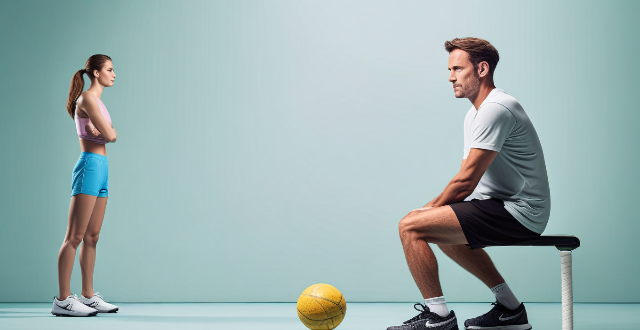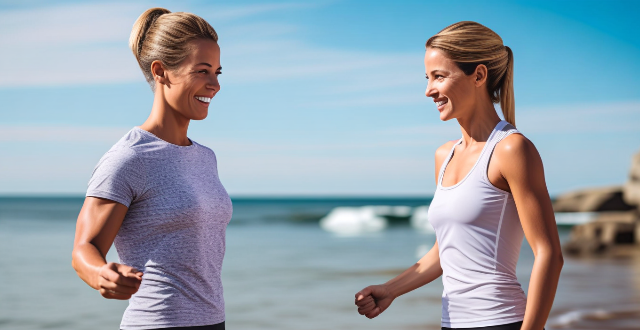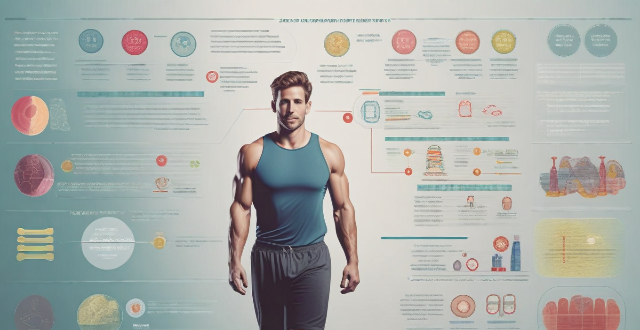Coach Personal

Is it necessary to hire a personal coach to improve sports skills ?
Improving sports skills is a common goal for many athletes, from amateur enthusiasts to professional competitors. One question that often arises is whether it is necessary to hire a personal coach to achieve this objective. In this response, we will explore the advantages and disadvantages of hiring a personal coach and provide some recommendations based on individual needs and circumstances. Advantages of Hiring a Personal Coach: Expertise and Experience: A personal coach brings expertise and experience to the table. They have spent years honing their craft and learning the intricacies of their sport. This knowledge can be invaluable when it comes to improving an athlete's technique, form, and overall performance. Customized Training Plans: Personal coaches create customized training plans tailored to each athlete's specific needs, goals, and abilities. This personalized approach ensures that the athlete is receiving the most effective and efficient training possible, which can lead to faster progress and better results. Accountability and Motivation: Having a personal coach provides a sense of accountability and motivation. The coach serves as a mentor and cheerleader, pushing the athlete to reach their full potential while also providing support and encouragement along the way. Injury Prevention and Recovery: Personal coaches are trained in injury prevention and recovery techniques. They can help athletes identify potential risk factors and develop strategies to minimize the likelihood of injuries occurring. Additionally, they can guide athletes through proper recovery protocols after workouts or competitions. Disadvantages of Hiring a Personal Coach: Cost: Hiring a personal coach can be expensive, particularly for top-level coaches with extensive experience and credentials. This cost may not be feasible for all athletes or may require significant financial investment over time. Availability and Accessibility: Personal coaches may not always be available at convenient times or locations for the athlete. This can make it difficult to maintain consistent training schedules or receive timely feedback and guidance. Compatibility Issues: Not all athletes will click with their personal coach, leading to compatibility issues that can hinder progress and enjoyment of the sport. It is important to find a coach who understands the athlete's goals, personality, and learning style. Recommendations Based on Individual Needs and Circumstances: Assess Your Goals and Level of Commitment: Before deciding whether to hire a personal coach, assess your goals and level of commitment to your sport. If you are serious about improving your skills and achieving specific milestones, investing in a personal coach may be worth considering. However, if you are primarily focused on recreational activities or occasional competitions, self-directed training may be sufficient. Consider Your Budget and Resources: Evaluate your budget and resources to determine if hiring a personal coach is financially viable for you. There may be alternative options such as group coaching sessions, online coaching programs, or working with less experienced coaches that offer similar benefits at a lower cost. Research Potential Coaches Carefully: If you decide to pursue hiring a personal coach, research potential candidates carefully. Look for coaches with relevant qualifications, experience working with athletes at your level, and positive reviews from previous clients. Schedule initial consultations to gauge compatibility and discuss your goals and expectations. In conclusion, hiring a personal coach can be beneficial for athletes looking to improve their sports skills by providing expertise, customized training plans, accountability, motivation, injury prevention, and recovery support. However, it is essential to consider individual needs, goals, budget, and resources before making this decision. By carefully evaluating these factors and researching potential coaches, athletes can make informed decisions about whether hiring a personal coach is necessary for them.

Can I get a personal coach at a tennis training camp ?
Tennis training camps offer various services, including group lessons, individual lessons, and personalized coaching. Having a personal coach at a tennis training camp can provide you with many benefits, such as personalized attention, customized training plans, accelerated learning, and motivation. To find a suitable coach, research the camp, contact them directly, ask for recommendations, schedule a meeting, and consider the cost. With the right coach, you can take your game to the next level and achieve your tennis goals.

What is the difference between a personal trainer and a sports coach ?
This article compares and contrasts the professions of personal trainers and sports coaches, highlighting their similarities and differences in terms of clientele, goals, training programs, feedback and guidance, and areas of specialization. Personal trainers work with individuals to improve their overall health and fitness levels, while sports coaches work with athletes or teams to improve their performance in a specific sport. The article provides a comprehensive overview of the key differences between these two professions, helping readers understand the unique roles and responsibilities of each.

How important is a golf coach in learning the sport ?
**The Importance of a Golf Coach in Learning the Sport** Learning golf, like any sport, requires dedication, practice, and guidance. One of the most crucial aspects of learning golf is having a good coach. A golf coach plays a significant role in shaping a player's skills, understanding of the game, and overall development. In this response, we will explore the importance of a golf coach in learning the sport. ### **1. Providing Expertise and Knowledge** A golf coach brings years of experience and knowledge to the table. They have a deep understanding of the mechanics of the game, including swing techniques, club selection, and course management. This expertise allows them to provide personalized instruction tailored to each player's needs, helping them improve their skills faster and more efficiently. #### **Key Points:** - Understanding swing mechanics - Club selection advice - Course management strategies ### **2. Identifying and Correcting Mistakes** One of the biggest challenges for beginners is identifying and correcting mistakes in their technique or approach. A golf coach can quickly spot these errors and provide targeted feedback and corrections. This not only helps players avoid developing bad habits but also speeds up their learning process. #### **Key Points:** - Identifying technical flaws - Providing targeted feedback - Preventing the development of bad habits ### **3. Motivation and Accountability** Learning any sport can be frustrating at times, and golf is no exception. A golf coach serves as a source of motivation, pushing players to reach their potential and overcome obstacles. Additionally, having someone to be accountable to can increase a player's commitment to their practice routine and overall improvement. #### **Key Points:** - Providing motivation during challenging times - Encouraging perseverance and resilience - Holding players accountable for their progress ### **4. Customized Training Plans** Every golfer has different strengths, weaknesses, and goals. A golf coach can create customized training plans that cater to each individual's needs, ensuring they focus on areas that need improvement while reinforcing their strengths. This personalized approach leads to more effective training sessions and better overall results. #### **Key Points:** - Tailored training plans based on individual needs - Focusing on areas for improvement - Reinforcing strengths for optimal performance ### **5. Access to Resources and Networking Opportunities** Golf coaches often have access to resources such as training facilities, equipment, and networking opportunities within the golf community. These resources can be invaluable for players looking to take their game to the next level. From connecting with other professionals to gaining access to advanced training tools, a coach's network can significantly impact a player's development. #### **Key Points:** - Access to quality training facilities and equipment - Networking opportunities within the golf community - Connections with other professionals for mentorship and guidance In conclusion, having a golf coach is essential for anyone looking to learn and excel in the sport of golf. From providing expert knowledge and personalized instruction to offering motivation and access to valuable resources, a golf coach plays a critical role in a player's journey towards mastering the game.

Is it necessary to hire a professional coach to create an effective sports training program ?
The text discusses the necessity of hiring a professional coach for creating an effective sports training program. It outlines the advantages of having a coach, including personalized plans, expertise, motivation, and injury prevention. The article also suggests that hiring a coach is not always necessary but can be beneficial in certain situations, such as for beginners or highly competitive athletes. Ultimately, the decision to hire a coach depends on individual needs and goals.

What are the key skills required to become a successful sports coach ?
To become a successful sports coach, one needs to possess strong communication skills, leadership abilities, tactical and strategic thinking, knowledge of sport and fitness training, patience and empathy, motivation and influence, organizational skills, and commitment to continuous learning. These skills help coaches communicate effectively with their athletes, manage team dynamics, strategize game plans, create effective workout routines, build an inclusive environment, motivate athletes towards success, and stay updated with the latest advancements in sports science. By developing these key skills, coaches can inspire their teams to reach new heights and enjoy success in their respective sports.

How much do sports coaches earn on average ?
The article discusses the factors affecting sports coaches' salaries, including the level of competition, the sport, and the location. It also provides average salary ranges for professional, college, high school sports coaches, and personal trainers/fitness coaches. Finally, it suggests ways to increase earnings as a sports coach, such as gaining more experience, specializing in a niche area, or starting your own business.

What are the best sports careers for someone who loves competition ?
Competitive individuals have various sports career options, including professional athlete, coach/manager, sports analyst/journalist, referee/umpire, personal trainer/fitness instructor, sports agent/manager, and event planner/promoter. Each path offers unique opportunities to thrive on competition and excel in the sporting world.

How does team sports contribute to personal growth and development ?
Team sports contribute significantly to personal growth and development by helping individuals develop various skills, qualities, and values essential for success in all aspects of life. These include communication skills, leadership abilities, teamwork and collaboration, discipline and responsibility, goal setting and achievement, emotional intelligence, and time management. Participating in team sports can help individuals become well-rounded individuals who are prepared for whatever challenges lie ahead.

What impact do sports have on an individual's social skills and personal growth ?
Sports play a crucial role in shaping an individual's social skills and personal growth. Engaging in physical activities not only promotes physical health but also enhances mental well-being, develops teamwork and leadership abilities, and fosters communication skills. Participating in sports requires individuals to work together as a team, take on leadership roles, and communicate effectively. These skills are essential for success in both personal and professional life. Additionally, sports provide opportunities for self-discipline, confidence building, and resilience development. By participating in sports, individuals can develop valuable skills that are transferable to all aspects of life.

What are some common challenges faced by new sports coaches ?
Becoming a new sports coach can be an exciting and rewarding experience, but it also comes with its own set of challenges. Here are some common challenges faced by new sports coaches: 1. Establishing Authority and Respect: Gaining the respect and trust of your athletes is crucial to your success as a new coach. This can be challenging, especially if you are young or inexperienced. You may need to work harder to establish your authority and earn the respect of your team. 2. Developing Effective Communication Skills: Effective communication is key to being a successful coach. As a new coach, you may struggle to communicate effectively with your athletes, parents, and other coaches. You will need to work on your ability to give clear instructions, provide feedback, and listen actively to your athletes' needs and concerns. 3. Building Team Chemistry: Building a strong team culture and chemistry takes time and effort. As a new coach, you may find it challenging to create a sense of unity and cohesion among your athletes. You will need to focus on building relationships, fostering a positive team environment, and promoting a culture of inclusivity and support. 4. Managing Time and Prioritizing Tasks: As a new coach, managing your time effectively can be a challenge. You will need to prioritize tasks such as game preparation, practice planning, player development, and administrative duties. Learning to delegate responsibilities and manage your time wisely is essential for success. 5. Dealing with Adversity: Coaching is not always smooth sailing. As a new coach, you may face adversity such as losing games, dealing with injuries, or handling conflicts within the team. It is important to develop resilience and learn how to handle difficult situations calmly and constructively. 6. Continuing Education and Development: As a new coach, there is always room for growth and improvement. You should strive to continue learning about coaching techniques, sports psychology, fitness training, and other relevant topics. Attending coaching clinics, workshops, and conferences can help you stay up-to-date with the latest trends and best practices in sports coaching.

How can I distinguish myself from others with a unique personal image ?
**How to Establish a Unique Personal Image** 1. **Identify Your Passions and Interests**: List your hobbies and reflect on your values. 2. **Develop Your Skills and Expertise**: Keep learning and specialize in a niche within your field. 3. **Craft Your Style**: Create a signature style and pay attention to personal grooming. 4. **Build Your Digital Presence**: Curate social media profiles and create a personal website or blog. 5. **Network with Like-minded People**: Join communities and attend relevant events. 6. **Showcase Your Achievements**: Compile a portfolio and collect testimonials. 7. **Stay True to Yourself**: Maintain authenticity and focus on self-improvement.

What are some of the most memorable moments in sports movies ?
Sports movies often showcase the triumphs and struggles of athletes, capturing our hearts and inspiring us to be our best selves. Here are some of the most memorable moments in sports movies: 1. The Miracle on Ice (Miracle, 2004) - Herb Brooks coaching the 1980 U.S. men's Olympic hockey team to victory over the Soviet Union during the Cold War. 2. Rocky Balboa's Victory (Rocky, 1976) - Sylvester Stallone stars as an underdog boxer who gets a chance to fight for the world heavyweight championship. 3. The Blind Side (The Blind Side, 2009) - Sandra Bullock stars as Leigh Anne Tuohy, who adopts Michael Oher, a homeless teenager with a troubled past, and helps him become a successful football player. 4. Remember the Titans (Remember the Titans, 2000) - Denzel Washington stars as Herman Boone, an African American coach tasked with integrating a newly formed high school football team in Virginia during the civil rights era. 5. Hoosiers (Hoosiers, 1986) - Gene Hackman stars as Norman Dale, a basketball coach who takes on the challenge of leading a small-town Indiana high school team to victory in the state championship.

How can I protect my personal information online ?
In today's digital age, protecting your personal information online is crucial. To safeguard sensitive data, one should use strong and unique passwords, keep software and systems up-to-date, be careful with public Wi-Fi networks, be wary of phishing attacks, and limit the amount of personal information shared online. These steps can significantly reduce the risk of having personal information compromised online.

What role does nutrition play in maintaining personal hygiene ?
The article emphasizes the importance of nutrition in maintaining personal hygiene. It suggests consuming nutrient-rich foods, developing healthy dietary habits, and supporting the immune system through nutrition to improve overall health and hygiene.

How do I dress professionally as a woman without sacrificing my personal style ?
Dressing professionally as a woman doesn't mean sacrificing personal style. Here are some tips: stick to neutrals and classic colors, invest in quality basics, incorporate trendy pieces appropriately, pay attention to fit and cut, and accessorize wisely. By following these guidelines, you can create a wardrobe that reflects both your professionalism and personal style.

What is the significance of personal hygiene in food handling ?
Personal hygiene is crucial for food safety, public health protection, and maintaining quality in the food industry. It prevents cross-contamination, reduces disease transmission, and enhances food quality. Adherence to personal hygiene standards impacts regulatory compliance, consumer trust, and economic implications within the food industry.

Can you recommend any online resources or courses for personal safety training ?
Online resources and courses for personal safety training offer valuable opportunities to improve self-defense skills. Recommended platforms include Krav Maga Global, Gracie University, Aikido World, and Personal Defense Network, each providing comprehensive curriculums and certified instructors.

How do I choose the right fitness instructor course for me ?
Choosing the right fitness instructor course is crucial for your career development and personal growth in the fitness industry. Before diving into course selection, clarify your objectives and research courses that offer the training and certifications you require. Consider factors such as accreditation and certification, curriculum and content, instructor qualifications, reviews and testimonials, cost and duration, hands-on experience, location and accessibility, support system, and alignment with personal values. Finally, trust your instincts and choose the course that feels right for you.

How can lifelong learning contribute to personal growth and development ?
Lifelong learning contributes to personal growth and development by enhancing cognitive abilities, advancing career prospects, providing personal fulfillment, fostering social engagement, promoting adaptability and resilience, and encouraging continuous self-improvement. By engaging in lifelong learning, individuals can maintain mental sharpness, stay relevant in a changing job market, pursue interests and passions, build social connections, become more adaptable to change, and continuously strive for self-improvement.

How does one's personal hygiene affect their social interactions ?
Personal hygiene is crucial for positive social interactions, boosting confidence, and maintaining good health. Good hygiene habits include regular bathing, teeth brushing, wearing clean clothes, hand washing, and taking care of skin and hair. Poor hygiene can lead to social isolation, misunderstandings, and health risks. Following simple tips can ensure that personal hygiene positively impacts social interactions.

How do celebrities use social media to promote their personal brand ?
Celebrities use social media to promote their personal brand by being authentic, engaging with fans, collaborating with others, maintaining consistent brand messaging, and promoting their own projects.

How can I measure the effectiveness of my personal image ?
Measuring the effectiveness of your personal image is crucial for maintaining a positive reputation and achieving your goals. Here are some ways to evaluate how well your personal image is working for you: - Self-Assessment: Ask yourself if you're confident in your appearance, communication style, and behavior, and if you receive positive feedback from others. - Feedback from Others: Seek honest opinions from trusted friends, family members, or colleagues about your personal image. - Observe Reactions: Pay attention to how people react when they meet you for the first time to gauge your first impression. - Track Your Success: Keep track of your achievements and setbacks to see if your personal image is helping you achieve your goals. - Online Presence: Check your social media profiles and websites to ensure they reflect the image you want to project, and pay attention to online engagement as an indicator of effectiveness. - Professional Development: Consider taking courses or attending workshops to enhance your personal image, and evaluate whether these efforts have led to improvements. Continuously assess and adjust your approach as needed to maintain a positive and impactful personal brand.

How does sports contribute to personal growth ?
Sports significantly contribute to personal growth by enhancing physical fitness, mental agility, emotional well-being, and life skills such as resilience, leadership, and adaptability. Regular participation not only maintains a healthy weight but also fosters discipline, self-esteem, and teamwork. Overall, sports are instrumental in developing well-rounded individuals capable of facing life's challenges with confidence and competence.

What are some examples of successful celebrity personal brands ?
Celebrity personal brands are a powerful tool in the entertainment industry. They allow celebrities to establish themselves as more than just an actor, singer, or athlete. Instead, they become a brand that represents their unique personality, values, and interests. Here are some examples of successful celebrity personal brands: - Oprah Winfrey: known for her philanthropic efforts, media empire, and inspirational speaking. - Kim Kardashian: rose to fame on reality TV, launched multiple successful businesses, and is a social media influencer. - Dwayne "The Rock" Johnson: began as a professional wrestler, transitioned into acting, and is known for his dedication to fitness. - Beyoncé: Grammy-winning musician, fashion icon, and activist for social justice issues. - Elon Musk: founder of several successful companies, innovator, and active on social media despite being a busy CEO.

What are the benefits of having a well-defined personal image ?
Having a well-defined personal image is crucial for individuals in both their personal and professional lives. It can significantly impact how others perceive them, which can lead to various opportunities and advantages. A well-defined personal image can help establish credibility and trustworthiness, make positive first impressions, increase professional opportunities, enhance self-confidence, improve interpersonal relationships, become a more influential leader, and gain greater control over one's reputation. By actively managing how you present yourself online and offline, you can ensure that people have an accurate understanding of who you are and what you stand for.

Is there a difference between personal hygiene and cleanliness ?
Personal Hygiene and Cleanliness are often used interchangeably, but they have distinct meanings. Personal hygiene focuses on the individual's physical well-being, while cleanliness focuses on the environment's tidiness and orderliness. Both are essential for maintaining good health and preventing the spread of infections.

Can sports help individuals achieve their personal goals ?
Sports have been an integral part of human civilization for centuries. They are not only a source of entertainment but also serve as a platform for personal growth and development. Many individuals engage in sports to achieve their personal goals, be it physical fitness, mental well-being, or social interaction. One of the most obvious benefits of sports is improved physical health. Engaging in regular physical activity can lead to reduced risk of chronic diseases such as heart disease, diabetes, and obesity, strengthened bones and muscles, improved cardiovascular health, and better sleep quality. Sports can also aid in weight management by burning calories and increasing metabolism, leading to weight loss or maintenance. Engaging in sports can help reduce stress levels by releasing endorphins, which are natural mood boosters. This can lead to improved mood and reduced anxiety, as well as better coping mechanisms for stressors in life. Participating in sports can also boost self-esteem by providing a sense of accomplishment and pride, leading to increased confidence in one's abilities and improved body image and self-worth. Sports often require teamwork and communication, which can help individuals develop these skills outside of the sporting arena. This can lead to improved interpersonal relationships and enhanced leadership abilities. Participating in sports can also provide networking opportunities, allowing individuals to meet new people who share similar interests. This can lead to new friendships and professional connections, as well as an expanded social circle and support system. In conclusion, sports can play a significant role in helping individuals achieve their personal goals. Whether it be physical fitness, mental well-being, or social interaction, sports offer numerous benefits that can positively impact various aspects of one's life. By engaging in sports regularly, individuals can work towards achieving their personal goals while enjoying the many benefits that come with it.

What are some common ways that companies collect and use personal data ?
Companies employ various direct and indirect methods to collect personal data, which they then use for marketing, product development, enhancing customer experiences, and ensuring security.

What are the do's and don'ts of personal branding ?
Personal branding involves creating an image or impression in the mind of others about an individual's unique attributes, skills, and values. Some do's include being authentic, defining your target audience, building a strong online presence, networking strategically, staying consistent, continuously learning and evolving, showcasing your achievements, and providing value. Some don'ts include being dishonest, overselling yourself, neglecting your online reputation, copying others, focusing solely on quantity, ignoring feedback, spreading yourself too thin, and neglecting personal development. By following these guidelines, you can create a strong and authentic personal brand that positions you as a leader in your field.